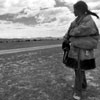|
[ back ] WORLD
SUMMIT ON SUSTAINABLE DEVELOPMENT "Beijing sets up roadblocks for pro-Tibet group" By
Thalif Deen NEW YORK - China is trying to block the participation of a pro-Tibetan group at a major global meeting on sustainable development, saying that the organization is working to free Tibet from Beijing's rule. In a letter to UN Secretary General Kofi Annan, Ambassador Wang Yingfan of China says his government "firmly opposes" accreditation of the Tibet Justice Center (TJC) to the World Summit on Sustainable Development (WSSD) because it is "a separatist organization" trying to divide Tibet and China. The summit is scheduled for Johannesburg from August 26-September 4, and the preparatory meeting is under way in New York. China also objects to the TJC's participation in that meeting. The letter says the TJC "not only denies that Tibet is an inalienable part of China but also advocates Tibet as rightfully an independent state". "It is clear that TJC's objective and separatist activities constitute not only an infringement upon the sovereignty and territorial integrity of China, but also a violation of the purposes and principles of the Charter of the United Nations," it warns. The letter says that the People's Republic of China is the legitimate government of the Tibetan people. Since its invasion of Tibet in 1949, Beijing has declared that the area is an integral part of China. The Dalai Lama, the spiritual leader of Tibet who lives in exile in the Himalayan foothills of neighboring India, has urged China to hold an internationally supervised plebiscite to determine the future of the territory. But Beijing has rejected this. The TJC's application for credentials was discussed at a meeting last week of the UN commission on sustainable development, which acts as the preparatory committee for the summit, but a final vote was put off until this week. Diplomats say China has enough political clout at the committee to ensure that the application is voted down. At the last meeting in January it orchestrated the rejection of credentials for a group called the "International Campaign for Tibet". In a letter to the commission last Tuesday, Annan said the WSSD secretariat reviewed the relevance of TJC's work to sustainable-development issues and found that its activities "are relevant to the work of the summit". But he warned the commission that the secretariat has also "come upon information on politically motivated activities of the applicant [TJC] concerning Tibet that are not directly related to sustainable-development issues". The commission, he said, may wish to take this into account when deciding on its accreditation. "Activities in these areas, which are listed in the TJC website, include advocacy, activism, and support for various causes related to the political status of Tibet," Annan added. The California-based TJC, which was established in 1990, says it promotes human rights, environmental protection and peaceful resolution of the situation in Tibet through legal actions, policy analyses and education programs. The group says the Chinese government, ironically, has already legitimized the TJC's participation in international dialogues on environment and development issues. China's government delegations "negotiated face-to-face with our organization" at World Conservation Union Congresses in 1996 and 2000, said D'Arcy Richardson, chairman of the TJC's environment committee. "At both sessions, we were able to forge agreements on water-resource issues that were of concern to both the Chinese and Tibetan peoples. "We come to this preparatory committee meeting and the WSSD to continue this dialogue," Richardson added. "We believe that environment and development issues are a natural starting point for fostering productive conversations on Tibetan issues. We demand our rightful place at the discussion table on these issues." The TJC says three of its programs are relevant to the summit. The group's environment program focuses on protecting Tibet's environment from unsustainable use of natural resources; the women's and children's rights program monitors the access of these two groups to health, education and employment, and reports on these areas to relevant UN organizations; and the corporate action project monitors the social and environmental impact of corporate investments in the Tibetan Plateau. "We'd like to think that, for once, the rest of the world will stand up and do the right thing, rather than standing by and making a mockery of the 'open, transparent and highly participatory' process the United Nations has promised for this summit," said Richardson. According
to Annan's letter, the TJC has regularly submitted reports to the UN commission
on human rights and the committee on the elimination of discrimination against
women, and is a member of the International Union for Conservation of Nature and
Natural Resources-World Conservation Union. [
photo | nancy jo johnson ]
|
